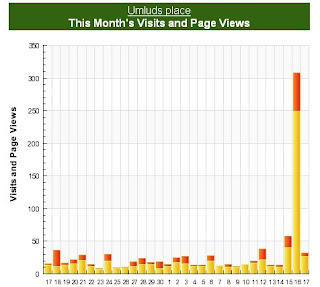Between the first two sentences of
David Brooks' Op-Ed in today's NYTimes, I found a cognitive dissonance:
"Not so long ago, corporate giants with names like PanAm [sic], ITT and Montgomery Ward roamed the earth. They faded and were replaced by new companies with names like Microsoft, Southwest Airlines and Target."
Ummm... It should have read, "...
Pan Am,
ITT and
Montgomery Ward ...
Southwest,
Microsoft, and
Target."
Seriously, who's paying for these people? On another note, though, the point that Brooks makes is a good one, but for a few other points: the supply chain and the international condition of the problem.
First, the supply-chain problem. All the car companies used to own the supply-chain companies that provided the materials for assembly and servicing - this includes all the companies involved in making the parts, distributing the parts, and selling the parts. Since the Big Three (and all other car companies) were set up as independent companies, their supply chains are independent, because their parts requirements are independent (again, as are all other car companies). Letting the Big Three die will mean the destruction of more than just the Big Three (and the jobs of the people they hire), but also the destruction of three major independently owned (and probably quite dissected) supply chains, amounting to (estimated by some) 250,000 jobs - all down the drain because of non-interchangeability of many key components.
Second is the international condition of the problem. Here, I'm talking both about the fiscal problem as well as the automotive problem. Thirty years ago (hell, even fifteen years ago, probably), if the United States' economy started to cave, then the rest of the world could bail it out, since a lot of the flow of capital was between the United States and Western Europe/Japan, with very little flowing to other countries/regions. Since the Carter/Reagan era, though, the world economy has grown to be quite complex, with growth not only being seen in SE Asia, but also China, India, Brazil, and much of the former Eastern Bloc in terms of both gross numbers and relative growth. Additionally, many countries in Africa and South America have grown (if not as much as Brazil in terms of total GDP growth, then definitely significantly in terms of relative GDP) considerably. Many of these countries were not at all affected by the dot-com bust of the early 2000s, and therefore didn't suffer massive downturns in their economies. (Many of these countries rely primarily on an extractive economy, and so long as global manufacturing continues with a need for raw materials, their economies will continue to grow in terms of GDP.) This time, though, they
are affected because of how American investment (and many global investment mechanisms) is tied into farm subsidies in this country (and the expanding global market for food) and manufacturing to name just two big ones.
Due to this interconnectivity of US (and major global) investment with agriculture and manufacturing, the 'sourness' of the US (and global) investments are having bitter knock-on effects in areas related to agriculture and manufacturing. (I'm not getting into an argument about
why investments went sour here, just the consequences of it.) The US farm bill is - to some extent - a give-away to the ethanol producers, and the production of ethanol for fuel means that there is out-investment in agriculture-for-food. Due to the international market for food (and price speculation in those markets), this is having major macro and micro-economic impacts in poorer countries where food prices are skyrocketing. This means less local investment in other areas as people spend ever-greater proportions of their incomes on food.
Next is manufacturing. With a downturn in the "global" economy
viz manufacturing, there is less need for raw materials. Deflation is something that people are starting to talk about, and while deflation is a great thing for the consumer in the world of "right now" (because prices are falling on manufactured goods), the implication of that is - barring the ability to introduce a demanded product that will be inflationary in nature - people will not buy now if they know that the same product will cost less in real dollars later. (Note, this isn't the same thing as last year's top-of-the-line computer costing less today.) The compounding (future) problem of a deflationary market is that products don't move off shelves, meaning that manufactured goods lose their value, meaning that the investment used to purchase, build, and ship those products will fall through (i.e., they won't be able to make a payment on that), meaning that the manufacturing company (and the shippers and sellers) all lose profits.
So, in the international front, you have two major forces at work: a major increase in the price for food in poor countries, and a major decline in the cost of manufactured goods in developed countries (the cost of delivery of manufactured goods to developing countries - combined with usually high tariffs and delayed shipping times - means that prices of manufactured goods are not likely to drop for a while here). The former means that people have less money to buy other goods, decreasing that country's import market. The latter means that companies have no money to pay off loans and other debts, decreasing that country's export market (and - if left unchecked - their import market, too).
What does this have to do with bailing out the big three? Well, remember that it isn't a 'bail out' in the sense of me giving you money to pay off your debts before you scarper off to somewhere else before you ever pay me back. To quote my father in a recent e-mail,
"First, what interest rate would be charged on the $700 billion borrowed to fund the bailout. That interest expense and not the $700 billion would be added to the national deficit. And second, if the bailout funds were spent to purchase assets (whether bad loans or shares of stock in banks) that were at least equal to the value of the amount paid, then that purchase would not produce an expense and in that case the deficit would not go up."
The first condition is true: the US government isn't printing out money to possibly "give" to the big three. The second condition has recently seem to become true, with the US government using the money to purchase assets in banks, and - so long as on average the asset isn't worthless - then the government deficit isn't going to increase dramatically. (Remember, if the government does the second option, these are not 'bailouts' so much as 'buy-ins', and - apart from making Sec. Paulson (and by extension the President) the largest socialists in American history - it would have the potential of decreasing the amount of the national debt from the other extreme possibility of just going out and handing out money). If the second condition is extended to the big three, then the government might not have much of a deficit, either.
What does this have to do with interconnectivity? Well, the problem is that instead of the government 'bailing out' the big three, the government has the possibility to avert roughly 250,000 job losses in directly related industries (and possibly many more in industries related to serving those workers and companies), as well as investing (
not throwing money at the problem) in the future of the country's manufacturing - and thus have the opportunity of making a return-on-investment, thus loweing the national debt... That's one of them. However, another major point is that not investing in the big three (but instead doing what was done during Reagan/Bush) means that there
is no government oversight to a national investment.
But these are only the national immediate concerns. A major international concern is that without the big three, we lose our standing in the world. Ford and GM are major international car manufacturers. They play a major part in the markets in Europe, Australia, Japan, and China. They are competitive there, but each have an Acchiles heel grounded in Detroit. Allowing their deaths will mean that the US will lose its manufacturing capability in the world economy. Now, although socialists and communists get hard/wet when thinking about the importance of manufacturing, let me point out that - unless there is no tariff cost - it is
really good to have a strong national manufacturing sector. It means that the country is able to have legal oversight over safety and minimum standards. It means that the country is able to rely on a steady production system during a period of national military crisis.
Getting back to Brooks. He does pose a good questions when he asks whether or not the $50 billion (or more) should be spent on the autos or on the workers who are going to get the shaft in the end anyway. He makes comparisons to the airlines and steel. However, I think these are false arguments. The airlines are primarily a service industry, and steel production is not manufacturing. I'm all for getting rid of the stupidity of the big three, but I don't think that the answer is to let them fail, since I think the government would have to spend more than $50 billion to take care of the workers of parts-suppliers, parts-manufacturers, shippers, sellers, etc. that would also become unemployed. (Because I don't think that they would be "incorporated" into German, Japanese, or Korean auto manufacturing lines so easily.)
Is it a good Op-Ed? I think it's one of the better ones. Without knowing how the government plans on possibly helping out the big three (investment vs. throwing money at them), I would say that it is not well-conceived on the economic front. However, the argument that they are dinosaurs trying to compete in a modern world was what I said ever since I saw the first Suburban on a trip back to the US. (If you ever travel again to Europe or go to Japan, Korea, India, etc. try and imagine how that - or any other 'mid-sized SUV' - would be a conceivable option there.) That argument is one that I keep on shouting out when I hear that the Libery Foundation is saying that there shouldn't be government investment in rail because it's a losing proposition, while roads are better (forgetting, of course, that road/bridge construction are both 100% subsidized by the government in most places). That argument is one that goes through my mind when I see people proudly (?) display bumperstickers saying, "This car was made in the USA" - like supporting the big three's non-innovation is a good thing.
Now, I think that
Daniel Gross at Slate has it closer to what I think (and he's a lot more succint, too).































